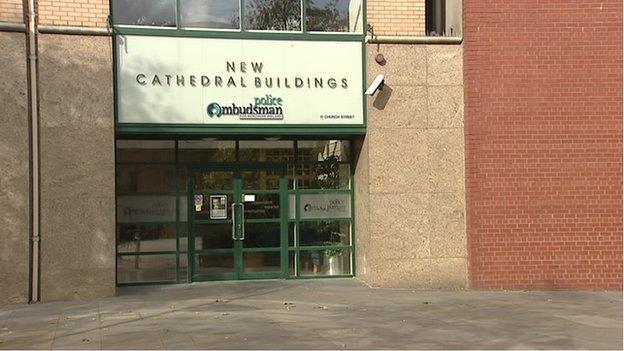NI paramilitary informant murders: a life lost, a life saved
- Published
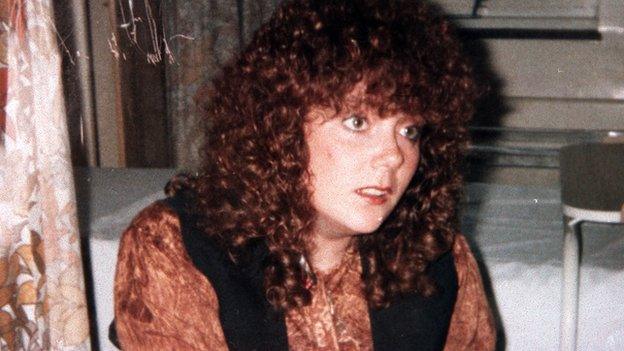
Caroline Moreland was taken from her west Belfast home and murdered by the IRA in 1994
The 30 years of violent conflict that was Northern Ireland's Troubles contain many sinister secrets that have slowly been uncovered as the years have passed.
But the issue of informants - undercover operatives inside paramilitary groups who were recruited by the British security forces - ranks among the very darkest of those.
In a BBC Panorama programme airing on Thursday night, the murky side of policing and security during the Troubles rears its head with the revelation that thousands of informants were recruited by the army, MI5 and Special Branch.
Many were involved in criminality. Some were given a licence to kill.
But what about those informants who did not kill, those who were in fact murdered themselves? Where do they fit in the spectrum of victims of the conflict?
Accused
The families of some of those individuals are now working together in a quest for justice for their loved ones.
Shauna Moreland is one of those relatives looking for answers.
Her mother Caroline Moreland was taken from her west Belfast home and murdered by the IRA in 1994 after being accused of being an informant.
Her killing came just weeks before the IRA ceasefire. She left behind three young children.
"I remember the last time I saw her," Shauna says.
"She was in the kitchen doing her ironing, she was going off for the day. So she gave me a hug and kiss and said: 'Cheerio.'
"I didn't think that would be the last time I'd see her."
Mistaken
It is believed Caroline disappeared a few hours later. Her family knew she had been taken by the IRA.
But for nine years, Shauna - who was 10 years old at the time - was unaware of the real reason for her mother's murder.
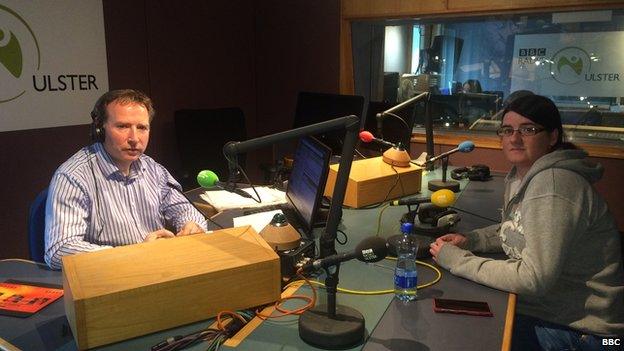
Shauna Moreland told the story of her mother's murder to BBC Talkback presenter Enda McClafferty
"When I was first told my mummy had died, I was told it was mistaken identity," she says.
"I didn't know the real reason until I was 19 and read in a newspaper that she was an alleged IRA informant.
"But it never ever changed my views on my mummy one bit. Her memory, for me, has never been tainted.
"To me, she's Caroline Moreland, my mummy - not Caroline Moreland, IRA informant, and she never will be."
Pawn
Shauna is adamant that her mother was not intentionally working as an informant, and may instead have been "trying to protect a friend".
She believes both the security forces and the IRA have questions to answer over Caroline's killing.
"I don't think she was informing, I think she was just used as a pawn.
"I think she did have information, she did know stuff that they didn't want her to. Wrong place, wrong time, maybe.
"For me, it has always been a case of one side made the bullet and the other side fired it. Both are equally to blame."
Saved
On the other side of the coin are those whose lives were saved as a result of the details that informants provided on the actions of paramilitary groups.
One man, a former policeman who has chosen to remain anonymous, says he is alive today because someone gave vital information ahead of a planned IRA attack on his home almost 40 years ago.
"I was taken from my house [by Special Branch] in the early hours of the morning and my family was removed because the gun team were there to kill me and would've killed everybody else," he recalls.
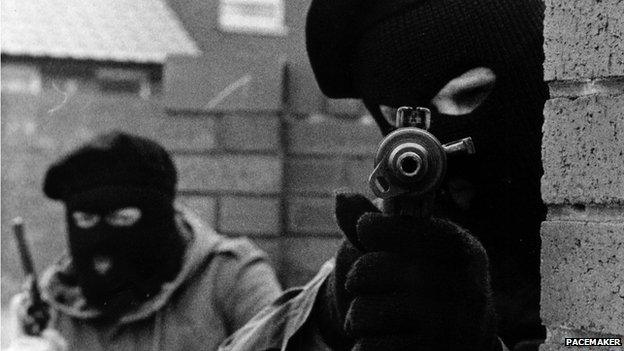
One former police officer says he believes an informant who gave details of a planned IRA attack on his home almost certainly lost their life as a result
"That's how hot the information was.
"I have no doubt that the man or the woman who thankfully gave that information ended up themselves naked, shot, tortured brutally, and their family traumatised and stigmatised because they did something that was humanitarian, that they thought would save somebody else's life."
Through tears he says he has "no doubt" that he and others were spared while others paid the ultimate price.
"I just wish I knew their identity and that I knew the family.
"I could then say thank you to them."
Fought
After more than 20 years of mourning in silence, only now does Shauna feel able to pursue a search for the truth around the circumstances of her mother's murder.
Working with 11 other families who have suffered a similar trauma, she is beginning a fight for the truth.
"There's a lot of us - better starting together than starting alone, people take more notice of you," she says.
"Somebody knows why, at the age of 10, I was left without a mother.
"I just want to be able to say to my mummy that I fought as hard as I could fight for her."
- Published28 May 2015
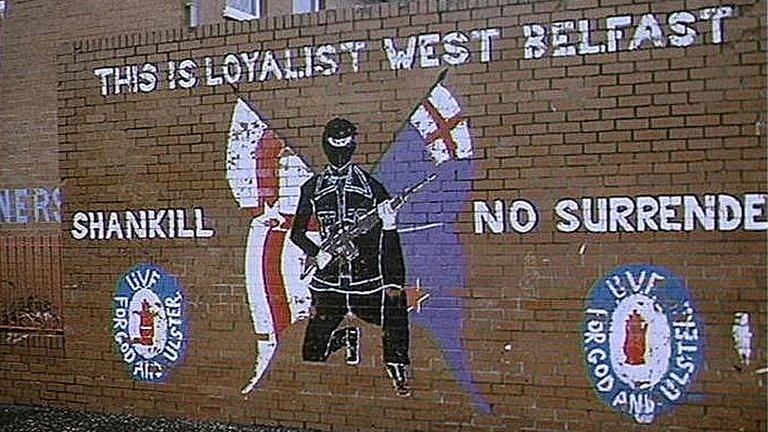
- Published15 April 2015
